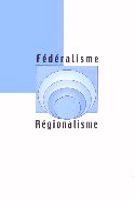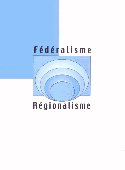- Startpagina tijdschrift
- Volume 16 : 2016
- 21st century Latin American regionalism in the spo...
- Introduction: 21st century Latin American regionalism in the spotlight
Weergave(s): 3272 (16 ULiège)
Download(s): 0 (0 ULiège)
Introduction: 21st century Latin American regionalism in the spotlight

1This special issue of the journal Fédéralisme-Régionalisme was originated from the presentations of the ‘1st International Workshop on Regionalism and Integration Processes in Latin America’, held in November 2015, and organized by the Center for International Relations Studies (CEFIR) of the Faculty of Law, Political Science and Criminology at the University of Liège.
2Two questions are pertinent when introducing the subject of Latin American international regionalism. Firstly, why is it important to continue studying regionalism? And more notably, why specifically regionalism in Latin America?
3Since the mid-1980s, with the intensification of the processes of globalization and interdependence, the so-called ‘new regionalism’ took place all around the world as an intricate, manifold phenomenon that was translated into diverse schemes, projects, ideologies and also institutions,1 according to historical and social particularities of the areas in (and actors with) which they took place. In addition, nowadays regionalism is facing a new, polycentric geopolitical environment in which different regionalist models and actors need to find their place.2 In other words, regions and regionalism still matter, as states, subnational entities and civil society all construct it and are affected by it, while having to deal with a complex global governance setting.
4In Latin America, several regionalist projects were put in motion in the last fifteen years, with differences in scope, size and relevance. Regarding the subcontinent particularities, Latin American regional setting shifted considerably, according to the rise of different actors and agendas. The establishment of ALBA and Unasur are good examples of new ways to counter-balance the international political dynamics toward a ‘post-hegemonic regionalism’.3 The rise of the left, which started in the turn of the century, became one of the fundamental characteristics of Latin American regional landscape and represented an origin of a paradigm change in regionalist models.4 Concomitantly, other regional institutions – for instance, the Andean Community (CAN) and the Southern Common Market (Mercosur) – both transformed their institutional apparatus in order to fit the ongoing change in the international and regional arenas.
5Advancing research both in terms of theorization and in terms of case analyses is thus essential for a deeper understanding of such a phenomenon. The first two articles of this special volume provide diverse analytical frameworks for future research. ‘Theorizing Latin American Regionalism in the 21st Century’, by Philippe De Lombaerde, explores possible theoretical routes that could conduct the research agenda by developing on three arguments: i) it is necessary to connect Latin American regionalism to the discussion of the future of International Relations (IR); ii) comparative approaches are needed and require global perspectives; and iii) the region’s empirical data needs to be more used for theorization. These ideas come hand in hand with Frederik Söderbaum’s argument that “formulating alternative perspectives is both possible and relevant”.5
6Originated from a structuralist perspective, Jean-Christophe Defraigne’s “Is a strengthening south-south regional integration possible? […]”, in turn, develops a comparative approach to economic integration, giving emphasis on the prominence of macroeconomic conjunctures in the strengthening of Latin American regional integration processes and implements such an approach in the analysis of Mercosur.
7Julián Castro-Rea’s “Snubbing Mexico: How Canada’s Conservatives Contributed to Undermine Trilateralism in North America” opens the ‘case studies’ section. Its aim of determining to what extent Canada’s latest Conservative administrations have destabilized NAFTA’s trilateral nature by pushing away Mexico is deeply connected to the broader context of inter-American relations. In this regard, Mariano E. Bertucci notes that “the question is […] whether, and how, the U.S. and Canada should respond to arrangements that seek to keep them at the margins.”6 Castro-Rea analysis thus focuses on what can be seen as one of the political responses of the U.S. and Canada to their marginalization from Latin American affairs.
8Mercosur has special attention in this issue, as two analyses developed on different sectors of the regionalist project take place. Ludmila Culpi’s and Alexsandro Eugênio Pereira’s “The Promotion of Migration Policy in Mercosur […]” and Gustavo Matiuzzi de Souza’s “The Institutionalization Process of Border Integration in Mercosur (2003-2015) […]” investigate the construction of policies and institutional bodies on migration and border integration during the period of deep transformations within the regional organism. Beyond successes and failures of the advancement of the regional policies analyzed in the articles, the question of whether Mercosur will continue to be a ‘gravitational force’7 after the mentioned changes took place remains unaltered and highly relevant.
9Lastly, but definitely not least, I would like to thank my colleague Ludmila Culpi, who organized with me, from beginning to end, both the workshop and this special issue. I also wish to thank also all the researchers and participants of the event for discussions of great quality and for presenting, despite their busy agendas, innovative and highly pertinent work. My gratitude also goes to the CEFIR, which, through the auspicious direction of Sebastian Santander, gave us the necessary support, structure and human resources to put forward this enterprise. Finally, I would like to express my gratitude to the Fédéralisme-Régionalisme journal, for the partnership all along the process of editing this volume.
Voetnoten
1 Hettne (B.), Söderbaum (F.) ‘Theorising the rise of regionness’, New Political Economy, vol. 5, nº 3, 2000, p. 457-472.
2 Baert (F.), Scaramagli (T.), Söderbaum (F.) (dir.), Intersecting Interregionalism: regions, global governance and the EU, London, Springer, 2014.
3 Riggirozzi (P.); Tussie, (D.) The Rise of Post-Hegemonic Regionalism: the Case of Latin America, London, Springer, 2012.
4 Dabène (O.) « Au-delà du régionalisme ouvert : la gauche latino-américaine face au piège de la souveraineté e de la flexibilité », in Dabène (O.) (dir.), La gauche en Amérique latine, Paris, Presses de Science Po, 2012.
5 Söderbaum (F.) Rethinking Regionalism, London, Palgrave, 2016, p. 2.
6 Bertucci (M.) ‘Latin America’s New Era of Regionalism’, Americas Quarterly, Winter 2015, http://www.americasquarterly.org/content/latin-americas-new-era-regionalism (consulted on 10/12/2015).
7 Almeida (P. R.) ‘Mercosul: a visão dos primeiros vinte anos e as perspectivas futuras’, in Resende (E. S. A); Mallmann, (M. I.) Mercosul 21 anos: maioridade ou imaturidade?, Curitiba, Appris, 2013.







